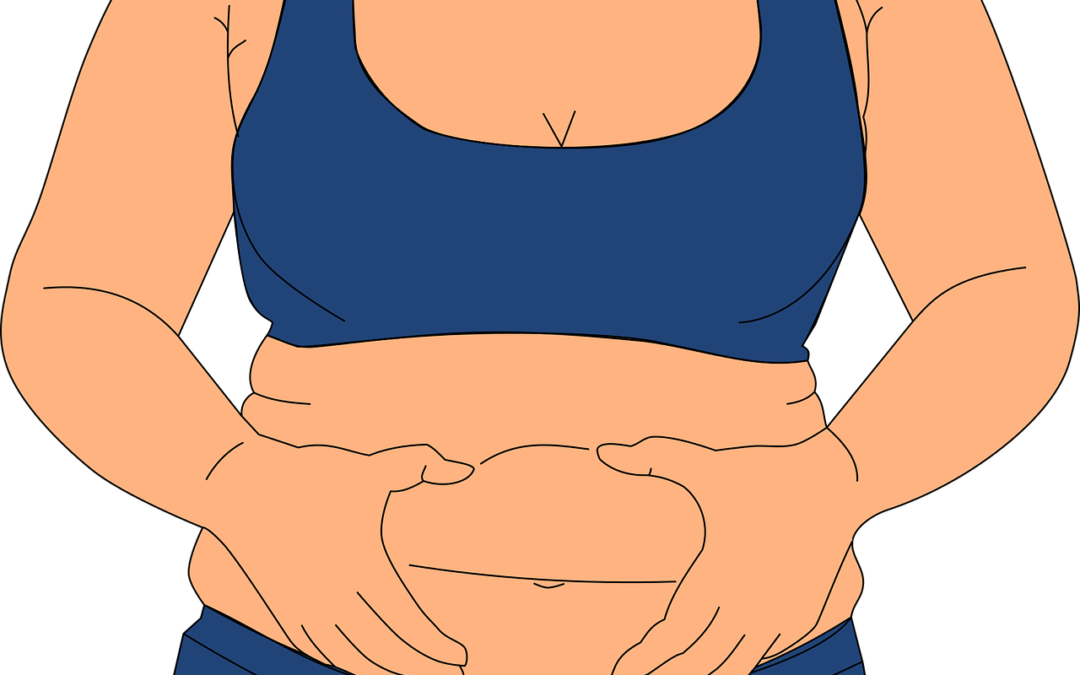Peri- and post-menopausal women, aged 50-60, typically gain 1.5 pounds per year. It was once believed this is because of a decrease in overall estrogen levels. Declining estrogen can lead to an increase in total body fat, and a decrease in lean body mass. Today a more accurate theory points to more bio-individual factors, such as:
- Aging, which lowers lean body mass and resting metabolic rate.
- Sleep disturbances, which can lead to less physical activity during the day.
- Less physical activity, which lowers lean body mass and resting metabolic rate.
- Not reducing caloric intake with age, which commonly results in weight gain.
Peri- and post-menopausal women also see weight gain deposited in the mid-region, as compared to other women generally gaining weight. The pattern of depositing fat in the central region can also increase risks of cardiovascular disease, which is the leading cause of death in post-menopausal women. Also obese post-menopausal women have a higher mortality rate than non-obese counterparts. So it is very important for peri- and post-menopausal women to strive for weight reduction at this phase of life. A healthy eating plan which curbs weight may also help to reduce risks for obesity related diseases and some cancers (breast & uterine).
Effective weight reduction plans should focus on the body’s changing nutritional needs, and get to the heart of unhealthy eating habits and cravings. There should be 150 – 175 minutes of physical movement (like brisk walking) each week. Resistance exercise is important for increasing lean body mass. There should also be some quiet time for focus and reflection. When you finally give your mind, body, and soul the nutrition that it needs, unhealthy cravings should subside. Currently the Mediterranean diet and my own R.I.G.H.T. diet (for autoimmunity) stand out as superior options for reducing cardiovascular risks and weight loss. Yoga serves as a superior therapy for the body and mind. Working with a health coach, lifestyle coach, behavioral psychologist, or dietician has shown improved outcomes in this journey. What are you waiting for? Schedule your appointment today!
Reference:
Kapoor E, et al. Weight Gain in Women at Midlife: A Concise Review of the Pathophysiology and Strategies for Management. Mayo Clin Proc. October 2017:92 (10):1552-1558



